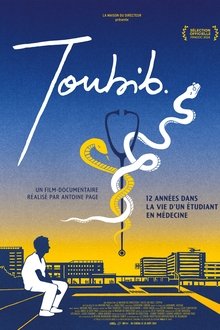Why are so many people wheat-intolerant or sensitive to wheat? And why is wheat linked to so many modern-day health problems, when it has been a staple of the human diet for thousands of years? In this documentary, a nutritionist interviews 14 experts, to understand how wheat has changed since it was first cultivated, how these changes could be affecting human health, and how people can break a dietary cycle that could be making them sick.
Related Movies

Whenever You Eat... (1949)
"Whenever You Eat" (1949) is an educational film produced by the National Dairy Council and Atlas Film Corp, emphasizing the importance of physical well-being and its connection to good living habits and a proper diet. Through a 12-minute narrative, the film likely promotes balanced nutrition, healthy eating routines, and the role of dairy in maintaining overall health. Targeting families, students, and general audiences, it serves as a mid-century public health message encouraging better dietary choices for improved daily life and long-term wellness.
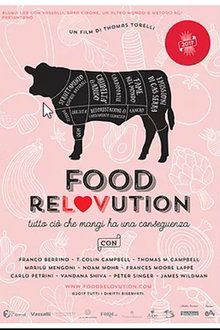
Food ReLOVution (2017)
“Food Relovution: What We Eat Can Make A Difference” is an eye-opening and compelling feature documentary that examines the consequences of the meat culture as concerns grow about health, world hunger, animal welfare and the environmental cost of livestock production. It aims to show how these global issues affect everyone and are interrelated, and how making our food choices with a sense of awareness, knowing what we are buying and what we are eating is the first fundamental step towards a better world.

The Circle (1967)
Produced in 1967, this black and white film is an inmate's view of Daytop, a drug treatment centre on Staten Island, New York, where addicts learn to get along without drugs. Uncompromising, often brutal group therapy sessions are designed to shake loose the excuses a victim makes for himself. The people and situations shown are authentic; only one actor was employed. The results obtained at Daytop are regarded by some psychiatrists as a breakthrough.
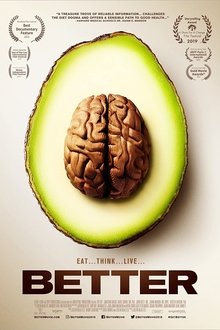
Better (2019)
Founder of Wellness Engineering and New York Times Bestselling author Jonathan Bailor shares how personal tragedy led him to dedicate his life to finding a better way to eat, think, and live that reverses the causes and symptoms of diabetes and obesity (Diabesity). Featuring expert interviews on-location at Harvard Medical School with Dr. David Ludwig, Dr. JoAnn Manson, Dr. Kirsten Davison, and Dr. John Ratey, along with intimate testimonials of everyday Americans, we see the pain and struggle of the old-fashioned and ineffective “calories in, calories out” model, expose the lies that led to it, and provide a proven, practical, and pleasurable alternative. BETTER culminates in offering a proven path toward better living by introducing revolutionary methods to lower the body weight “Setpoint” through simple, evidence-based solutions that everyone can use to optimize their current diet to prevent and reverse many of today’s most common diseases.
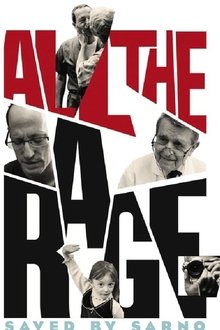
All the Rage (Saved by Sarno) (2016)
America is experiencing an epidemic of pain. One man has the answer to the problem yet the medical establishment has ignored him. For nearly 50 years, Dr. John Sarno has been single-handedly battling the pain epidemic by focusing on the mind-body connection and the nature of stress and the manifestation of physical ailments. With a renowned practice in rehabilitative medicine at NYU he is also a bestselling author of numerous books that deal with psychosomatic disorders. Filmmaker Michael Galinsky's family has a long history with Dr. Sarno and their experience will be woven into the fabric of the film, alongside well known patients, including Howard Stern, John Stossel, Jonathan Ames, Larry David, and many others.
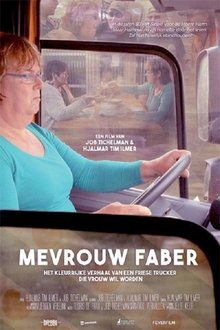
Mevrouw Faber (2019)
In the early eighties, the tough trucker Harm married the shy, country girl Siepie. Thirty years later Harm tells her that he wants to become a woman. That is difficult to hear for Siepie. Not only because she will lose her husband, but also because she is afraid of gossip in their small, Frisian village. Yet she gives Harm the space to openly live as Harriette.
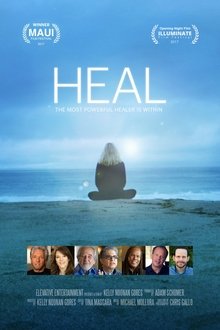
Heal (2017)
A documentary film that takes us on a scientific and spiritual journey where we discover that by changing one's perceptions, the human body can heal itself from any disease.

Into Madness (1989)
Initially airing on HBO's "America Undercover" series, this riveting documentary focuses on three families shattered by the psychiatric disorder of schizophrenia. Subjects "Bob," "Missy" and "Steven" have lived for over a decade with schizophrenia. The film documents the difficult day-to-day existence of both those afflicted with this order and the families searching for answers to their loved ones' suffering. This film also shows the varied and variably successful treatment methods for each of the subjects—one is placed in a group home, one is placed in an institution, and one is cared for at home. The documentary was critically acclaimed for its compassionate treatment of mental illness.

Fat Chance (2017)
Fat Chance is a grassroots Australian story of physical conquest that will change the way you feed your family forever. This new documentary follows Warren Hepsworth who sets out to ride a pushbike from Perth to Melbourne on a low-carb, high-fat diet. You’ll see Warren’s preparation for the ride as well as highlights and lowlights from the journey, and the diet change. The movie attempts to debunk the notion that athletes have to carb load and that you can’t get your energy from fat. In the process we learn that much of what we’ve been told about a healthy diet is wrong.

Brains in Danger (2017)
For the past 20 years, the world has seen an alarming decrease in IQ and a rise of autism and behavioral disorders. This international scientific investigation reveals how chemicals in objects surrounding us affect our brain, and especially those of fetuses.

The Fittest (2020)
In 2019 the fittest athletes on earth took on the unknown and unknowable during four intense days of competition at the CrossFit Games. "The Fittest " captures all the drama as chiseled athletes descend on Madison, Wisconsin, to face a series of trials. On top of the physical challenges, this year the sport grew from 40 men and women, to over 100 of each. But with this new format came cuts of the field, so for the final half of the weekend, only 10 men and 10 women move on to determine who is the fittest. The best among them enter the pantheon of CrossFit giants and earn the right to call themselves the "Fittest on Earth."
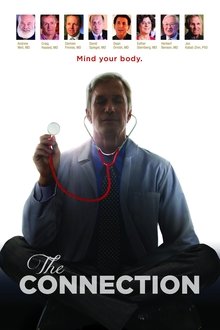
The Connection (2014)
The Connection is a film about how frontier research is proving that there is a direct connection between your mind and your health.
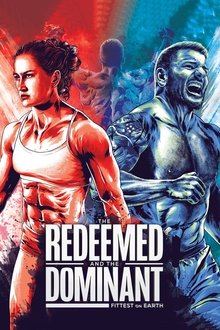
The Redeemed and the Dominant: Fittest on Earth (2018)
In 2017, the fittest athletes on Earth took on the unknown and unknowable during four of the most intense days of competition in CrossFit Games history. "The Redeemed and the Dominant: Fittest on Earth" captures all the drama as the top athletes resembling chiseled Grecian gods descend on Madison, Wisconsin, to face a series of trials. Hercules faced 12; they take on 13. Emotions run high as a throng of Australian athletes rise to the top. By the end of the competition, some learn tough lessons - that all that glitters isn't gold, or even bronze - and some learn that they're even stronger than they realized. The best among them enter the pantheon of the CrossFit giants and earn the right to call themselves the "Fittest on Earth"
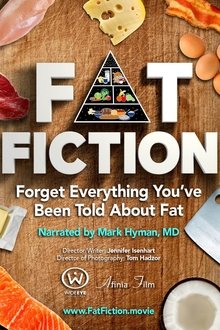
Fat Fiction (2020)
Leading health experts examine the history of the U.S. Dietary Guidelines and question decades of dietary advice insisting that saturated fats are bad for us.
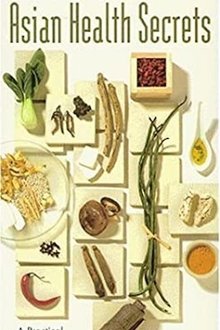
Asian Health Secrets (1999)
Herbalist Letha Hadady shares the secrets of her trade in this fascinating lesson in nontraditional medicine, revealing which Chinese herbs help mitigate conventional Western diseases such as high blood pressure, depression and diabetes. You'll also discover certain food products that contribute to overall health. Follow Letha to her kitchen, where she concocts her potent potions, and find out how you can replicate her approach in your home.
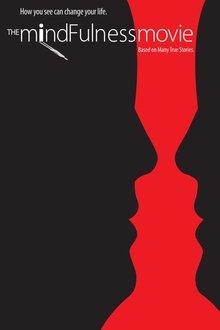
The MindFulness Movie (2013)
An entertaining, secular, and educational look at the benefits of mindful practice, 'The Mindfulness Movie' brings together an unprecedented group of the world's leading neuroscientists, psychiatrists, authors, and others to decode mindfulness. First, they help to define what mindfulness is and how the concept of neuroplasticity plays into the practice. Then, they walk you through eight practical, foundational mindful lessons--like managing stress and mindful eating. Finally, meet some heartwarming veterans and teens who are using mindfulness to overcome issues like PTSD, depression, bi-polar disorder, anxiety, and everyday life stresses. Everyone, regardless of belief system or background, has something to gain from watching ' The Mindfulness Movie.'
